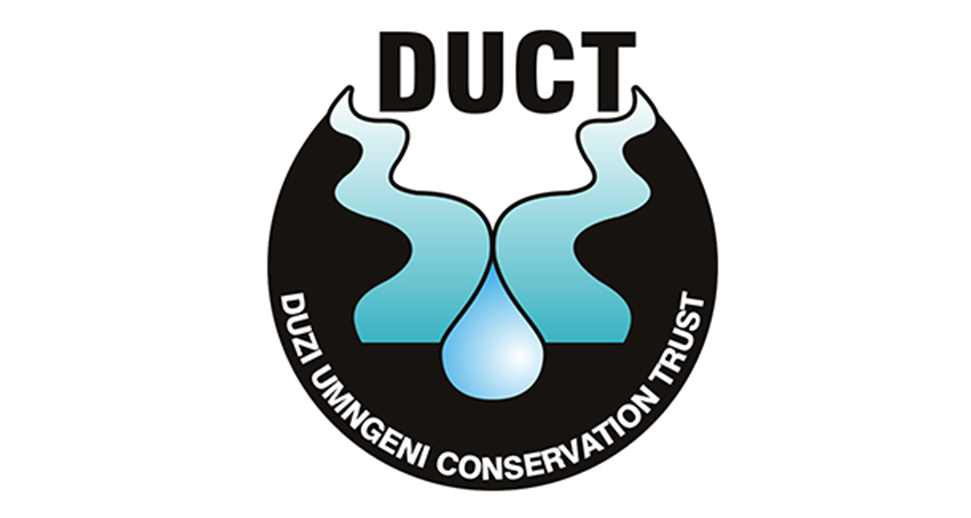Reduced Industrial Pollution in the River
DUCT lobbies for more extensive and intensive monitoring of industrial pollution in the river. DUCT teams and volunteers provide eyes on the ground to assist the authorities to pick up new instances of industrial pollution as soon as possible. Changes to the municipal bylaws are required to make it more difficult for certain industries to get away with using the sewers and stormwater drains to dispose of excessive amounts of toxic substances.

DUCT monitors rivers for signs of industrial pollution such as this instance of edible oil pollution in the Baynespruit – shown here at its confluence with the Duzi
Removal and control of invasive alien vegetation
Wouldn’t it be nice to paddle down the river and see only indigenous vegetation? It’s easy to forget what things looked like 5 years ago but DUCT has significantly reduced the riverside infestations of bugweed, balloon vine, mulberry trees, Mauritius thorn, water lettuce, water hyacinth, lantana, syringa, wattles, gums and so on. We do this using a combination of physical removal, herbicides and biological control, and work closely with the Department of Environment Affairs and Umgeni Water.

DUCT worker spraying invasive Parthenium weeds on the lower Umgeni.

DUCT works with DWA and SASRI to spread biocontrol agents which inhibit invasive weed spread

When spraying and biocontrol are not sufficient, there’s always physical removal. Limpopo grass being removed above the N2 in Durban using the amphibious Truxor machine
Increased Flows in Rivers
DUCT lobbies for the implementation of the environmental flow provisions in the Water Act of 1998, which have not yet for various reasons been implemented in the uMngeni catchment. When they are implemented (optimistically in 3 to 5 years’ time) there will be a number of compulsory variable spate releases from all dams during the rain season regardless of the levels in the dams. The law is on our side, but we still have some distance to travel on the road to implementation. We may ultimately take court action if the law is not implemented in terms of the Water Act, but for the meanwhile our policy is to be patient.

DUCT is lobbying for the Environmental Flow provisions of the National Water Act of 1998 to be applied in the uMngeni Catchment
Education, Public Awareness
Without increased public awareness and education of the next generation we would be fighting a losing battle. DUCT is active in the education of school children, community groups and environmental workers. Our schools education programme is currently working with more than 30 schools and over 500 pupils, with contact sessions taking place most days of the week. Our Mpophomeni community education programme has made innovative use of street theatre and Eco-champions, and is presently being extended into Imbali and Slangspruit.
In May 2012 A group of 5 DUCT members walked the length of the uMngeni River from the source to the sea and this venture attracted much public and media interest.
Since our inception, DUCT’s mission statement has been to champion the environmental health of the uMsunduzi and uMngeni Rivers. That’s at the core of everything that we do. Progress is being made – there is definitely much more public and political awareness of the importance of river health now than there was 10 years ago. This is slowly translating into increased government budgets and programmes to improve river and catchment health, and DUCT has helped with the identification of the priorities which need most attention.

DUCT works continually to raise and sustain public awareness regarding River Health
Regulation of Sand Mining
DUCT has tried over the years to engage with the Department of Mining to improve the monitoring and regulation of sand mining activities in the Dusi and uMngeni Valleys. This Department is however notoriously dismissive of such approaches. We have had more success with the Departments of Water Affairs and Environment Affairs, as well as with the eThekwini Metro, all of whom are also trying to limit uncontrolled mining. We recently employed a graduate, Siyabonga Ndlovu, on a 30 month contract to work on our own sand mining monitoring programme, which we will use to give the bodies with statutory authority more of the information they need to do a better job in this critical area.

DUCT is working to improve the monitoring and regulation of sand mining operations in the uMngeni Catchment
Improved Land Care and reduction of soil erosion
DUCT has initiated a programme of improved land care and soil erosion prevention in the upper Msunduzi catchment, and has also implemented erosion control measures along the route of the Guinea Fowl portage in the Devil’s Cauldron section. This work will be expanded if funding can be sourced from e.g. the Department of Environment Affairs Working for Soil programme. Unless land care in the catchment can be improved, siltation of the rivers and the dams will proceed at an excessive rate. Meanwhile DUCT assisted the KNCU with the procurement and management of a competent contractor to desilt a critical portion the Campsdrift Canal after the abortive attempt by the Msunduzi Municipality to dredge the canal.

DUCT has initiated a number of soil erosion control projects in the uMsunduzi catchment
Investment in Valley Communities
DUCT’s work over the last three years has resulted in employment valued in excess of R10 million in the communities which live along the Duzi and uMngeni Rivers. Over this period at any one time there have typically been between 100 and 200 people employed in various aspects of environmental work, from alien plant control to erosion protection, mountain bike trail building and litter removal. A number of our supervisors have also been employed from these same communities.

In the last three years DUCT has spent over R10 million in wages in local communities
Bilharzia reduction
One of DUCT’s long term goals is to reduce the incidence of Bilharzia in the uMngeni river and surrounding communities. We have recently employed a BSc graduate, Kholoza Magudu, on a 30 month contract to assist with this work. She is presently being trained by Professor Chris Appleton, South Africa’s foremost expert on Bilharzia, to identify the snails which are hosts to the Bilharzia larvae, and will then map the location of these snails along the entire river. With this information the most at-risk communities will be identified and then a programme of education, testing and treatment will be initiated, hopefully with sponsorship and in partnership with the Department of Health.

DUCT is working on a long-term Bilharzia detection and reduction campaign
The R60 levy paid as part of your annual KNCU registration fees helps to make this possible. If you would like to know how you can support DUCT further, please visit www.duct.org.za/sponsors






































